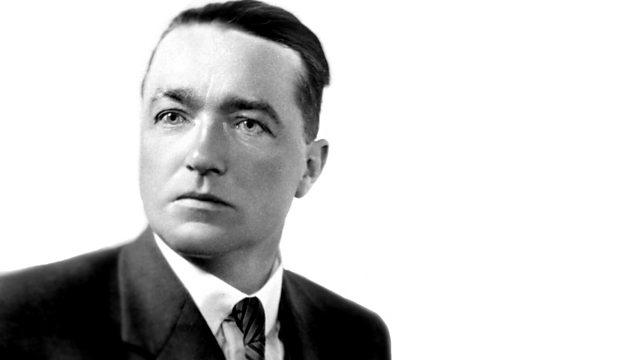
Moeran's Ghost
Donald Macleod focuses on Moeran's early years, including tuition at the Royal College of Music, his earliest piano music - from 1919 - and his involvement in the First World War.
"Old Raspberry", commonly known as Jack Moeran, was a pioneer in the collecting of British folk music. Greatly influenced by the music of Delius and Vaughan Williams, much of Moeran's output is inspired by nature, and was championed by the leading artists of the day. He was a great friend to Peter Warlock - both enjoyed travelling together to rural public inns to record the singing of the local inhabitants. Moeran and Warlock lived together for a period at Eynsford in Kent, where many tales of nudity, drunkenness and reckless driving originated.
Moeran's life, although spanning a short period of just over fifty years, is an interesting one. Tutored at the Royal College of Music by Sir Charles Villiers Stanford and John Ireland, his studies were interrupted by the First World War when Jack was posted to the Western Front. Due to an exploding shell, he sustained a head injury which affected him for the rest of his life. Alcohol also affected Moeran, although it was sometimes questionable as to whether it was the drink or his head injury which was making him stagger.
A love interest for Moeran, cellist Peers Coetmore, entered into the composer's life relatively late. Moeran composed a number of works for her including a sonata and concerto, but although Jack certainly gained much inspiration from their relationship, the marriage itself was not a success. Coetmore confessed to one friend that it was like being married to an uncle.
Moeran in the second part of his life spent much time at Kenmare in Ireland. The rural landscape there provided him with the solitude and inspiration he craved. It was at Kenmare on one stormy night, that Moeran fell off the pier into the mouth of Kenmare River. His body was pulled out the next day. Some speculated suicide, or drunkenness, but the inquest found that he'd had a stroke which had caused him to fall.
Throughout the week there will be archive recordings each day of E.J.Moeran in interview from 1947, discussing his life and music.
In the first programme exploring the life and music of E. J. Moeran, Donald Macleod looks at the composer's early years, including his tuition at the Royal College of Music, his earliest piano music from 1919, and his involvement in the First World War.
During the programme there is archive footage of Moeran in interview from 1947, discussing his early musical career.
Last on
More episodes
Previous
You are at the first episode
Music Played
-
![]()
Ernest John Moeran
Twilight (1920)
Performer: Roderick Williams, baritone, John Talbot, piano
- Chandos CHAN10596-2.
-
![]()
Ernest John Moeran
Autumn Woods & At a Horse Fair from 3 Pieces for Piano
Performer: Una Hunt, pianist
- ASV CDDCA1138.
-
![]()
Ernest John Moeran
In the Mountain Country (1921)
Performer: Ulster Orchestra, Vernon Handley, conductor
- Chandos CHAN10235X.
-
![]()
Ernest John Moeran
Ludlow Town (1920)
Performer: Roderick Williams, baritone, John Talbot, piano
- Chandos CHAN10596-2.
-
![]()
Ernest John Moeran
String Quartet no. 1 (1921)
Performer: Melbourne String Quartet
- Chandos CHAN10170X.
Broadcasts
- Mon 29 Nov 2010 12:00����ý Radio 3
- Mon 29 Nov 2010 22:00����ý Radio 3
Beethoven Unleashed – the box set
What was really wrong with Beethoven?
Composers A to Z
Who knew? Five eye-opening stories from Composer of the Week
Five reasons why we love Parry's Jerusalem
What is the strange power of Jerusalem which makes strong men weep?
A man out of time – why Parry's music and ideas were at odds with his image...
The composer of Jerusalem was very far from the conservative figure his image suggests.
Composer Help Page
Find resources and contacts for composers from within the classical music industry.





